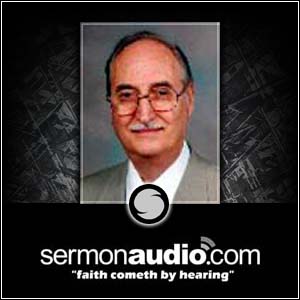In the last 50 years our society has become increasingly urban and fast-paced. As a result of this, to a great degree we have lost the sense of community and belonging enjoyed by past generations. Often individuals feel isolated and all alone.
Many Christians can identify with David in Psalm 142:4: “Look to my right and see; no one is concerned for me. I have no refuge; no-one cares for my life.” Therefore, we believe it is very important for the church to address this need and cultivate a sense of community and belonging through the fellowship ministries of the church.
Acts 2:42 mentions that the early Christians devoted themselves to fellowship:
“They devoted themselves to the apostles’ teaching and to the fellowship, to the breaking of bread and to prayer.”
It is interesting that they devoted themselves to fellowship in the same way as they devoted themselves to the apostles’ teaching and to worship. Fellowship was a high priority in their Christian lives.
Often when a church talks about fellowship, the idea relates only to social situations. While these are an important aspect of fellowship, the biblical concept of fellowship goes far beyond having a dinner or a coffee time together.
Koinonia is the Greek word for fellowship. It is translated in several ways in the New Testament such as “partnership” (Luke 5:10), “participation,” “sharing,” and “fellowship.” The focus of Christian fellowship is not an activity, but a relationship with other believers. The early Christians were not devoting themselves simply to activities, but to a relationship with each other. As believers, they were committed to a community relationship in Christ with each other.
In describing this relationship with each other in Christ, the New Testament sets forth important principles concerning how we are to relate to each other as God’s people.
First of all, we are to understand that we all belong to the Body of Christ. When a person believes in Jesus Christ, he is incorporated by the Holy Spirit into the Body of Christ.
1 Corinthians 12:12,13 states: “The body is a unit, though it is made up of many parts; and though all its parts are many, they form one body. So it is with Christ. For we were all baptized by one Spirit into one body-whether Jews or Greeks, slave or free-and we were all given the one Spirit to drink.”
Romans 12:4,5 states the same idea: “Just as each of us has one body with many members, and these members do not all have the same function, so in Christ we who are many form one body, and each member belongs to all the others.”
Both 1 Corinthians 12 and Romans 12 follow these statements with some very practical exhortations about how this belonging to one another is to be applied:
“Be devoted to one another in brotherly love. Honor one another above yourselves.” (Romans 12:10)
“Share with God’s people who are in need. Practice hospitality.” (Romans 12:13)
“Rejoice with those who rejoice; mourn with those who mourn. Live in harmony with one another. Do not be proud, but be willing to associate with people of low position. Do not be conceited.” (Romans 12:15,16)
1 Corinthians 12:25,26 states that the parts of the Body of Christ “should have equal concern for each other. If one part suffers, every part suffers with it; if one part is honored, every part rejoices with it.” See also: Romans 1:12; Phil. 2:1-5; Hebrews 10:24,25; Eph. 4:16.
These principles are to be expressed in believers’ lives through mutual care and concern for one another, honoring one another and avoiding spiritual competition with each other, correcting and encouraging one another, praying for one another, and participating in activities that build and strengthen relationships.
In accordance with these biblical principles of fellowship, we seek to provide opportunities for the development of friendships and a sense of belonging and community.
Some of the opportunities for fellowship in Covenant of Grace Church include:
1) Mutual prayer support.
We emphasize the importance of prayer for each other. In all of our small group Bible studies we give opportunities to share needs and concerns so that the group can pray for them together and individual members can continue to pray for the needs later. We also have a church prayer chain which enables serious needs to be immediately passed through the church for prayer. We also publish serious prayer needs in the church bulletin each week so our church family can have a record of needs that call for continual prayer.
2) Church dinners.
We try to regularly have church dinners. We have made these interesting and fun events by having them revolve around themes such as Italian night, south of border (Mexican food), Chinese cuisine, etc.
3) Church parties and picnics.
Throughout the year we have several church parties and picnics. We have found that playing games and eating snacks together helps facilitate people getting know one another and developing friendships.
4) Church camp-out/retreat.
In the fall we have held a two day church retreat at a Christian camp. This is not only a time of recreation for families and friends in the church, but it is also a meaningful spiritual time. We usually plan a devotional theme for the retreat and hand out material and study guides on that theme. We meet together and in small groups for discussion and prayer concerning the theme of the retreat. This has often been a time of spiritual assessment and renewal in people’s Christian lives.
5) Social outings.
Periodically we plan special outings for fellowship and friendship building. For example, we may have a bowling night or have a board game tournament (such as monopoly, risk, or, pictionary), ladies’ or men’s luncheons after church, etc.
Our goal in these activities is to provide opportunities for the building of relationships and to build a sense of community and belonging within the congregation. These activities are also excellent evangelistic opportunities in that we encourage people to invite friends, neighbors, and relatives.




